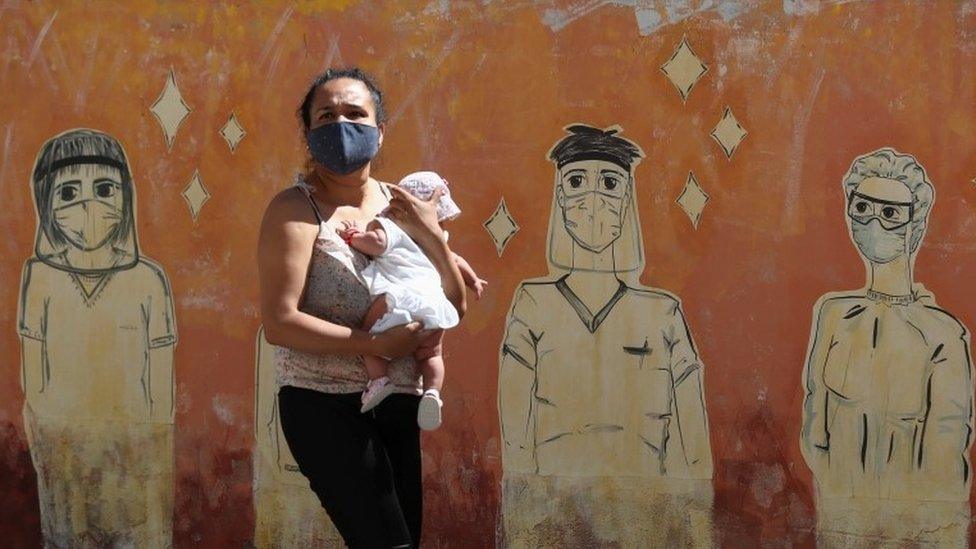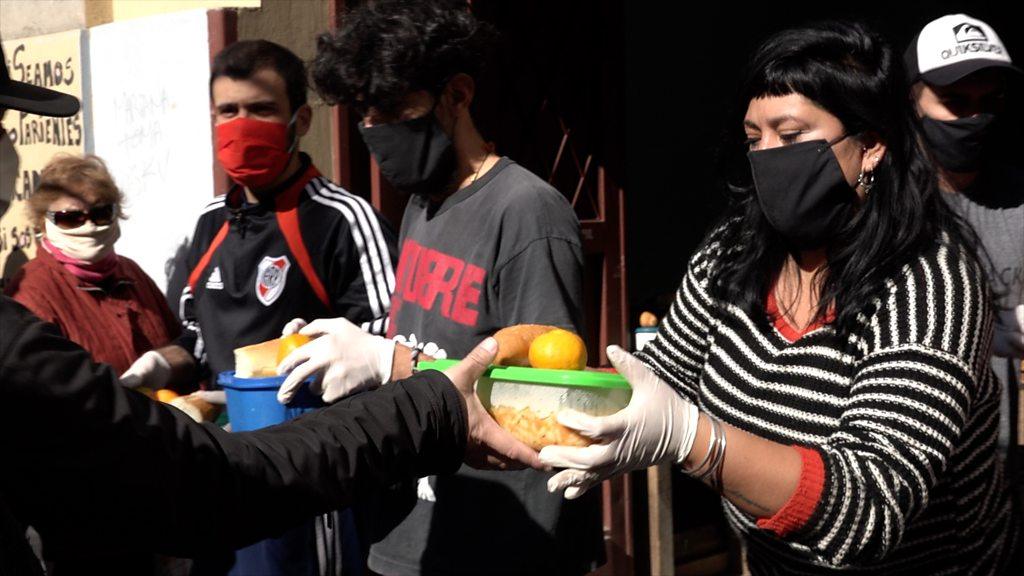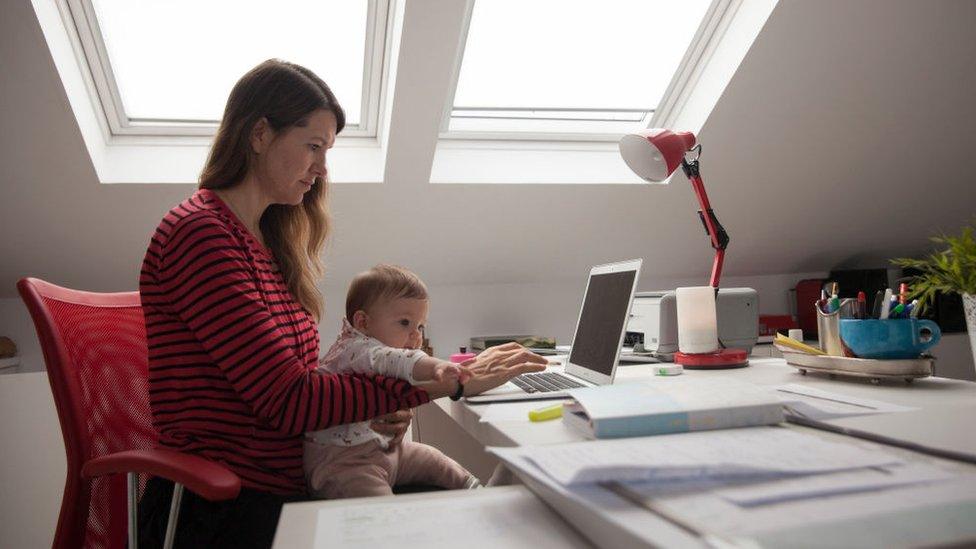Covid: Argentina imposes new tax on wealthiest
- Published

Argentina has been badly hit by the pandemic
A one-off tax on Argentina's richest people comes into effect to help pay for medical supplies and relief for businesses struggling due to Covid-19.
Those with assets of more than 200 million pesos ($2.3m; £1.67m) will have to pay about 3% on assets declared within the country and over 5% on assets held abroad.
It will apply to around 12,000 people.
The government hopes to raise around $3bn. The money will also help fund scholarships and social aid.
Senators passed the one-off levy - dubbed the "millionaires' tax" - by 42 votes to 26 in December.
The measure, brought in by centre-left President Alberto Fernández, has been criticised by the opposition, which described it as "confiscatory".
There have also been concerns raised by the Argentine Rural Society that the tax could be made permanent.
But the country has been badly hit by the pandemic, which has deepened already high rates of poverty. Almost 40% of the country's population lives under the poverty line, while the unemployment rate sits at 11%.
How lockdown affected Argentina's livelihoods
Oxfam's annual report on economic inequality said Argentina was showing the way towards progressive taxation of the rich as the key to an equitable recovery from the current crisis.
"A tax on the excess profits earned by corporations during the coronavirus pandemic could generate $104 billion - enough to provide unemployment protection for all workers, and financial support for all children and elderly people in the poorest countries," the report stated.
Argentina has almost two million confirmed cases and more than 47,000 deaths from the virus.
- Published3 June 2020

- Published11 November 2020
